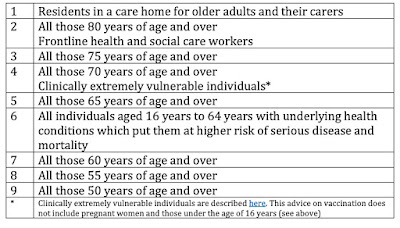Yesterday’s news that the PfizerBiontech vaccine has been authorised by the Medicines & Healthcare products Regulatory Agency is extremely welcome and gives us serious hope of the return to normality.
An estimated 800,000 doses are due to be delivered into the UK next week with first inoculations on Tuesday 8th December. The UK has ordered 40 million of this particular vaccine – enough to vaccinate 20 million people. Each patient requires two doses, 21 days apart.
Pfizer and Biontech have concluded all three stages of their clinical trials and have been providing their safety data to the Medicines and Healthcare products Regulatory Agency throughout.
This is why the regulator has been able to work at breakneck speed. The safety of patients has not been compromised by speed. The MHRA started their preparation to approve the vaccines in June and has been examining the data tirelessly.
The MHRA is a trusted regulator. They played a huge part in authorising the use of dexamethasone to treat Covid patients in hospital, which has led to an improving survival rate of people admitted to hospital with Covid-19.
Vaccine hesitancy is a real issue. But it is important we address people’s reasonable and key questions to persuade them to take the vaccine. I would urge everyone to watch Iain Dale's show on vaccines. It is informative and answers many of the legitimate concerns people may have.
The Joint Committee on Vaccination and Immunisation have set out a plan to deploy the vaccine. The Government will prioritise vaccines to those who are most vulnerable first:
The UK has invested millions into research and development and has secured 357 million vaccine doses, which is amongst the highest per capita in the world.
A huge thanks to the Vaccine Taskforce, Matt Hancock and all at the Department for Health and Social Care for their tireless work to get us to this stage.
We can now see light at the end of the tunnel. We can all play our part by following the basics of hands, face and space. Have the jab. Save your life. Save other people’s lives.


